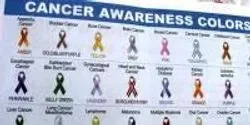News

Labconco Corporation, Kansas City, Missouri, is pleased to announce its 90th Anniversary this year. Laboratory Construction Company, as it was first named, was founded by Phil Goldfisch and Ralph Callaway and started out in a small garage in downtown Kansas City back in 1925. The first products were Kjeldahl apparatus which made sense being in one of the largest milling towns used by local milling companies in the area.

Scientists have found antibiotic resistance genes in the bacterial flora of a South American tribe that never before had been exposed to antibiotic drugs. The findings suggest that bacteria in the human body have had the ability to resist antibiotics since long before such drugs were ever used to treat disease.

Researchers at the Institute of Biological, Environmental and Rural Sciences at Aberystwyth University have collaborated with scientists from Dijon, France to try to solve the problem of bad tasting beer.

A sampling of more than 1,000 Gulf of Mexico fish, shrimp, oysters and blue crabs taken from Cedar Key, Fla., to Mobile Bay, Ala., between 2011 to 2013, shows no elevated contaminant levels, according to a seafood safety study conducted by Dr. Andrew Kane and colleagues at the University of Florida. In fact, some 74 percent of the seafood tested showed no quantifiable levels of oil contaminants at all.

Scientists at the University of Manchester have discovered a way to make trees grow bigger and faster, which could increase supplies of renewable resources and help trees cope with the effects of climate change.

A little-known element called californium is making big waves in how scientists look at the periodic table.

A research team led by Shree K. Nayar, T.C. Chang Professor of Computer Science at Columbia Engineering, has invented a prototype video camera that is the first to be fully self-powered—it can produce an image each second, indefinitely, of a well-lit indoor scene. They designed a pixel that can not only measure incident light but also convert the incident light into electric power. The team is presenting its work at the International Conference on Computational Photography at Rice University in Houston, April 24 to 26.














